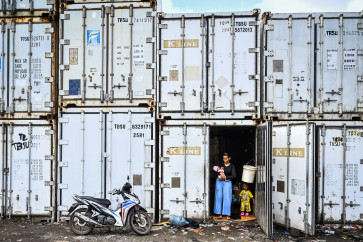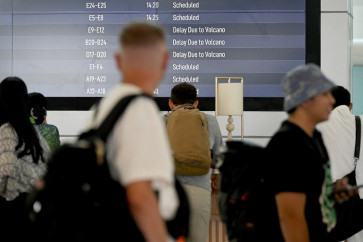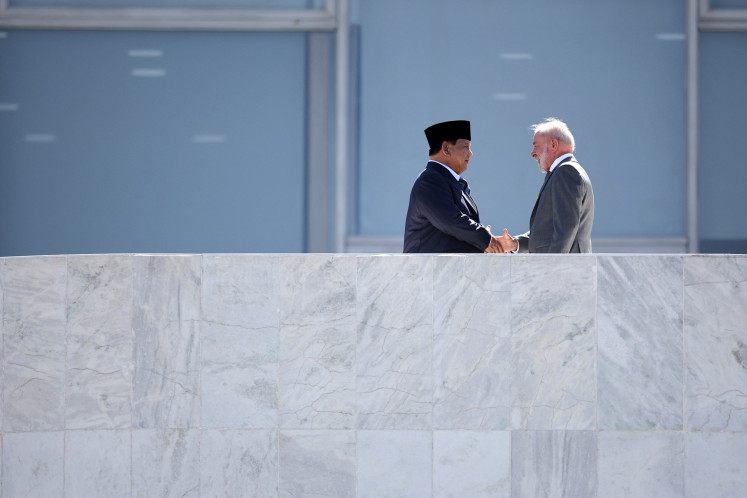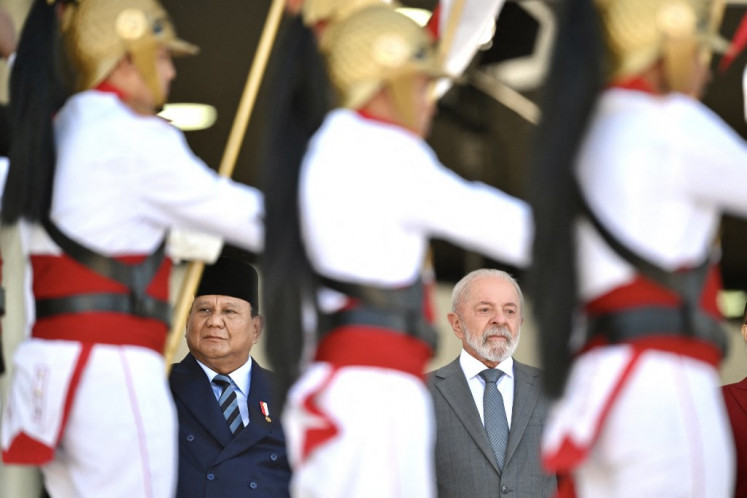Popular Reads
Top Results
Can't find what you're looking for?
View all search resultsPopular Reads
Top Results
Can't find what you're looking for?
View all search resultsASEAN should enhance efforts to reach out to its people
Despite ASEAN’s achievements and intentions to become a single “caring and sharing community”, the grouping has lacked popular participation during its 45 years of existence
Change text size
Gift Premium Articles
to Anyone
D
espite ASEAN’s achievements and intentions to become a single “caring and sharing community”, the grouping has lacked popular participation during its 45 years of existence.
University of Indonesia (UI) international relations observer Makmur Keliat said that one important achievement of ASEAN had been the absence of major conflict in the region.
“ASEAN’s presence has been important for building norms in the region,” he said.
Established on Aug. 8, 1967, in Bangkok with the signing of the ASEAN Declaration by founding member nations Indonesia, Malaysia, Philippines, Singapore and Thailand, ASEAN completed its expansion to 10 member nations when Brunei Darussalam joined on Jan. 7, 1984, Vietnam on July 28, 1995, the Lao People’s Democratic Republic and Myanmar on July 23, 1997, and Cambodia on April 30, 1999.
Makmur said that the region before ASEAN’s establishment was far from a peaceful area, citing the Indonesia-Malaysia confrontation from 1962 to 1966 and the US and French wars in Vietnam from the 1950s to the 1970s.
“At least the existence of ASEAN has significantly improved interactions between member nations, which in the end has contributed to economic, political and sociocultural cooperation,” he added.
Despite its successes, an important element has been missing in shaping the sociocultural identity of ASEAN. This can perhaps be understood considering that the association, since its inception, has been principally been a diplomatic endeavor. The acceleration of people-to people contacts can be expected to take time.
In general, ASEAN member nations have been more concerned with building states and not communities.
The reaction of Indonesian and Malaysian people on the Ambalat border issue and the Preah
Vihear Temple conflict between Thailand and Cambodia in the past year has shown an absence of “ASEAN spirit”.
“We haven’t seen an ASEAN spirit or a manifestation of an ASEAN identity in solving the conflicts. This is the challenge for ASEAN,” he said.
Makmur suggested that ASEAN invite civil society groups at its meetings, from working groups to the ministerial level. “The representatives of civil society will not have a say in the meetings; their role will be just to observe. Their engagement could raise a sense of belonging and sense of identity in ASEAN,” he added.
He said he derived his argument from the China-ASEAN Free Trade Agreement: Even though the agreement had been signed in 2002, the public was surprised when it came in to force.
“It is still a long way away for ASEAN to build its spirit, but the effort should be intensified by engaging more people in the grouping’s activities.”
Yuyun Wahyuningrum of the Human Rights Working Group (HRWG), an umbrella organization for dozens of Indonesian human rights NGOs, expressed a similar sentiment.
She said that her experience in working with civil society groups in the region had shown her that ASEAN should promulgate more of its achievement to its people.
“ASEAN’s existence has proven to be beneficial. At least it strengthens advocacy groups and networking in Southeast Asia.”
Yuyun said that ASEAN’s failure to issue a joint communiqué at the 45th ASEAN Ministerial Meeting (AMM) in Phnom Penh underlined a need for ASEAN to maintain its mechanisms free from outside intervention.
Disunity in ASEAN was also felt at the civil-society level. There are still perceptions among ASEAN governments that civil society groups should be controlled or monitored.
“There is not a unified perception toward civil society. For some governments, civil society is not considered an important pillar of democracy, but something to be monitored,” Yuyun said.
Yuyun acknowledged that ASEAN was gradually growing more relevant to its people. A clear example could be seen in 2008, when a tropical cyclone Nargis struck Myanmar, causing massive destruction and at least 138,000 fatalities.
In the worst natural disaster in Myanmar, the government refused foreign aid, but welcomed assistance from ASEAN.
At least, ASEAN has changed the way governments interact with its people. “Not only ASEAN’s presence in the humanitarian aspects, but also to mediate government and its people,” Yuyun said.










